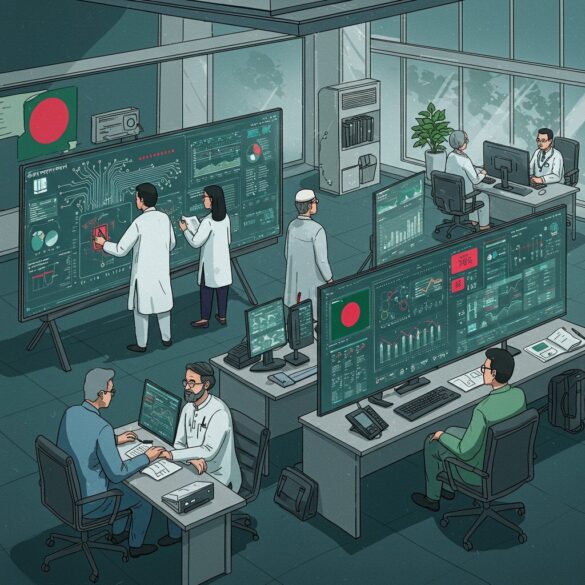Bangladesh has launched a clear 2025 AI roadmap to bring artificial intelligence into everyday government services, and the plan focuses on practical pilots, training and safeguards that people will see and use. The National AI Strategy directs pilots in health, agriculture, transport and public services so early projects can become steady benefits like faster clinic checks, phone-based crop advice, and shorter waits at public counters. The roadmap connects with Smart Bangladesh 2041 and an ICT master plan that aims to build a government cloud, digital IDs and a national stack so services can run together more smoothly. Officials and writers note the country already has strengths such as hi-tech parks, a Tier IV data centre and a large freelance tech workforce, but they also warn that more computing power, local cloud services and safe test sandboxes are needed to scale work responsibly. Practical wins are already visible in some places: garment factories use camera systems to spot defects and cut waste, a Krishi Bot app helps farmers diagnose crop problems from photos, and clinics are testing AI tools to screen X-rays more quickly so nurses can focus on urgent cases. Those examples show how small, useful systems can save money, reach more people and lift the quality of services without replacing human care. The guide also lists clear ecosystem targets such as growing startups to more than two thousand five hundred teams, reaching roughly one billion dollars in funding and expanding IT export work to help create new jobs and chances for young people. To make this real, the plan stresses workforce training that changes job routines, not just adds courses, so civil servants learn hands-on skills like prompt writing, data stewardship and basic system checks that let them move from paperwork into higher-value tasks. Private firms, incubators and research labs are invited to work with government teams to build local solutions, and that public-private mix can speed up tools that meet local needs while keeping data under local control. The strategy also flags real risks such as bias, data sovereignty and possible misuse, and it asks for clear rules, regular checks and public reports so people can trust services that use AI. Experts recommend simple, citizen-facing tools first because they often cut queues and deliver easy value, while larger projects are tested more slowly with oversight. Planners say success will need steady funding, open training, shared cloud space for experiments and clear rules that balance safety and innovation. Overall the roadmap is practical and positive: it looks for steady steps that deliver cleaner services, more local jobs and tools that help people every day while building a local AI industry that serves citizens first. Training and testing continue nationwide.
Bangladesh Unveils 2025 AI Roadmap to Boost Jobs and Public Services
34


